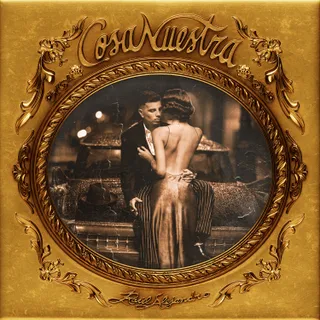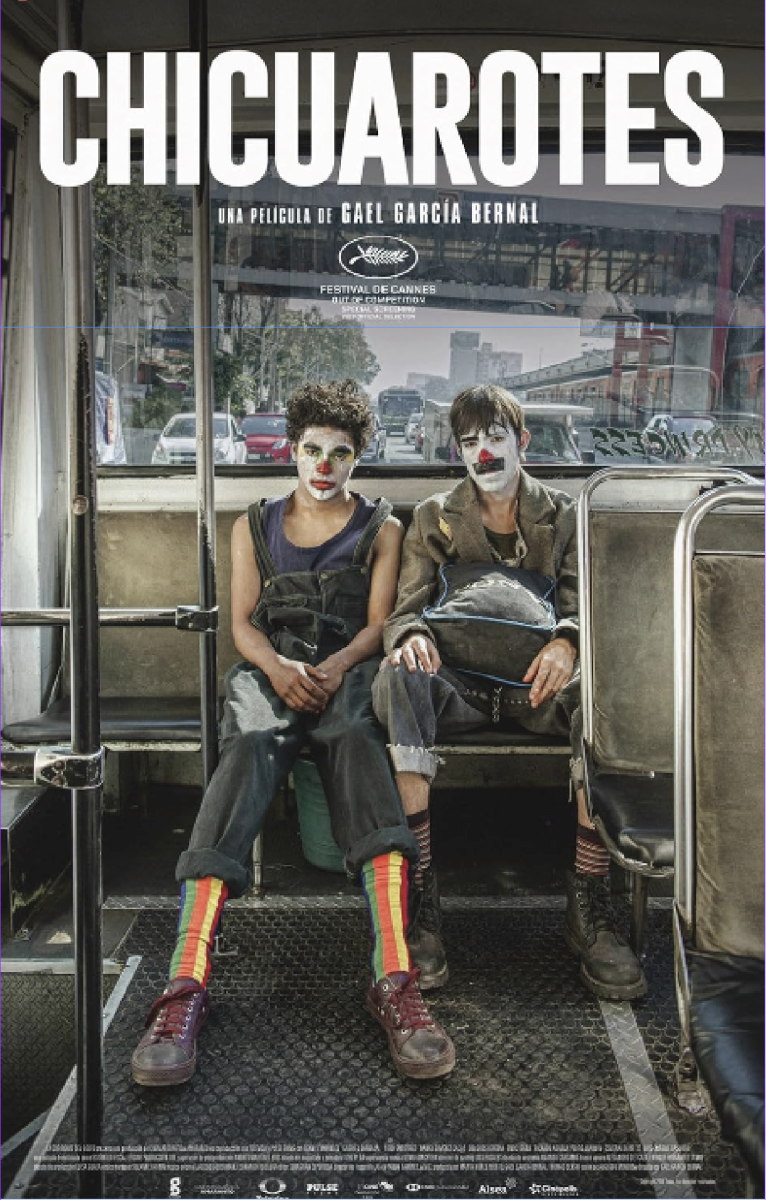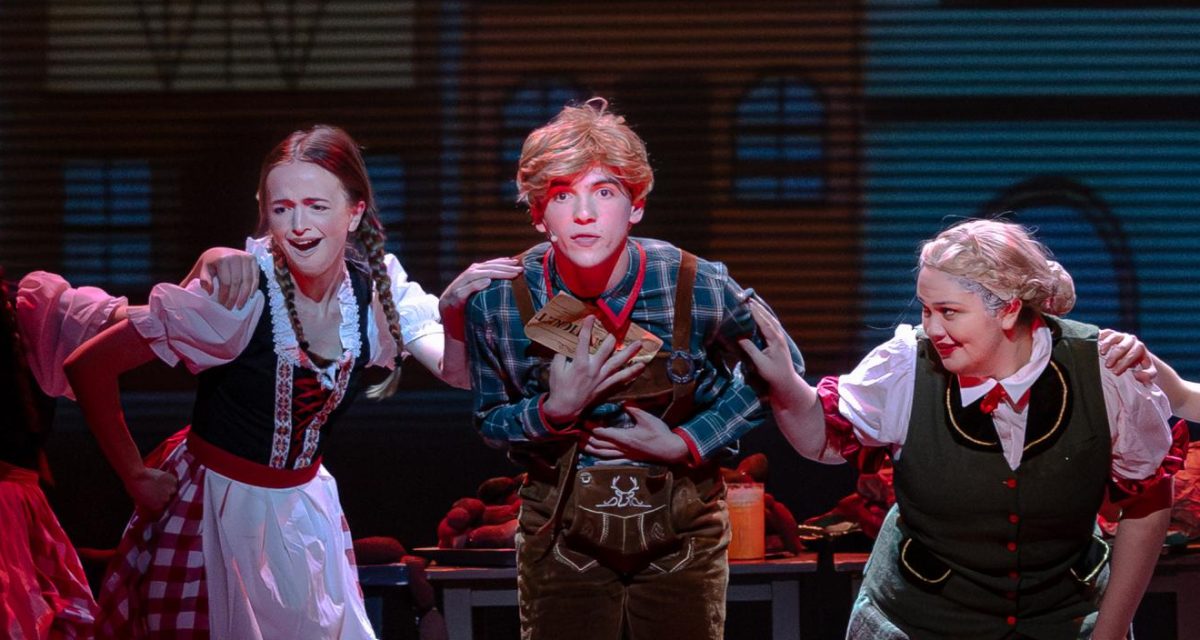Latin global superstar Rauw Alejandro released his fifth studio album on Nov. 15, titled after the 1969 salsa record, Cosa Nuestra (“Our Thing”). The album embraces a glamourous 1970s aesthetic and sound, which might surprise those who have listened to his previous two works, while it maintains the essence of Rauw that distinguishes him from other reggaetoneros. Saturno (“Saturn”) and its alternate-storyline sister album Playa Saturno (“Saturn Beach”) are two albums shamelessly Urbano: Saturno is a distinct record straight from the stars, brilliant, charismatic, lustful and danceable; Playa Saturno is less innovative, but there’s no need to reinvent the wheel when you want to create a catchy reggaeton album. It’s the perfect reggaeton album — any one of its 14 tracks are perfect for the club or a late-night party. But now Rauw has chosen to return to the roots of Spanish music, with many of the songs soaking in the classical styles of bachata and salsa. The album is his most mature while also, I believe, his most sorrowful.
As expected from Rauw Alejandro, the album is packed with explosive songs that will do numbers on the Latin charts. The tracks most likely to chart would be the downbeat “Que Pasaría” featuring Bad Bunny or the reggaeton bop “Revolú” featuring Feid due to those featured artists being high-profile giants in the industry. “Mil Mujeres” also might chart because it’s a catchy, modern take on salsa. Fused with Rauw’s charm and unashamed lyrics, it has charting potential. It’s one of the most interesting and original songs, with an instrumental outro reminiscent of Tokyo Drift switching the beat up and leaving you wanting more. “2:12 AM” featuring Latin Grammy-nominated newcomers Latin Mafia also has potential; Rauw trades lines with Latin Mafia’s Emilio and Milton de la Rosa over an interesting fusion of rock, R&B and pop beats that sound unlike any other song on the album or otherwise.
Although they may not chart, there are some hidden gems in the meat of this album. “Espresso Martini” featuring Marconi Impara and Yan Block tries something new in the area of Latin trap. Taking a slower beat than a Rauw Alejandro song usually would, it’s just as vigorous and self-assertive. “Khe?” featuring Romeo Santos, vocalist and frontman of bachata group Aventura, has a smooth saxophone that carries you through a passionate R&B song that expresses regret for a failed relationship. The song then morphs into slow reggaeton as it nears the end, putting you right back in Rauw Alejandro’s home court. Another romance-pop song, “Amar De Nuevo,” asks the intended recipient to teach him how to love again. The song is a slow, funky twist on a mix of light salsa and smooth synthesizers, with a choir repeating “ooh-uh” throughout, and a clear afrobeats influence, somewhere in the “alternative” corner. It goes to show that Rauw Alejandro set out to create an original album, mixing musical roots with modern styles that looks toward the future with pride in its uniqueness. Each song is unlike the next. Instead of opting to have an album where each song is in the same spot musically, Cosa Nuestra masterfully strides across genres like nobody’s business. Rauw Alejandro achieved an original album that is appealing and new from beginning to end.

Cosa Nuestra’s most obvious theme is love: the loss of love and new romances, a timely subject considering Rauw Alejandro’s last few years. Cosa Nuestra is the artist’s first project after his split with Spanish popstar Rosalía in July 2023. The couple had been together since December 2019 and were even engaged at the end of 2022, which they revealed in their single “Beso” from their joint EP RR released in March 2023. Rauw channels his heartbreak into an album that exemplifies the unpredictability of lost love: some songs like “Pasaporte” and “Touching The Sky” are happy and poppy, while others like “Que Pasaría” and “Ni Me Conozco” are downright sad.
On every song, Rauw references love in a slightly varying manner. From “Que Pasaría” imagining how it would feel to get back with his ex, to “Ni Me Conozco” lamenting on his degrading condition since the breakup, and “Mil Mujeres” flaunting finding new relationships with “a thousand women” post-breakup. Cosa Nuestra also sets itself apart with its featured performers across a variety of genres and languages. He stays in his comfort zone with fellow reggaetoneros Bad Bunny on “Que Pasaría” and Feid on “Revolú,” and features his regular producer Mr. Naisgai on “Pasaporte.” He then tries something new by pulling American singer/producer Pharell Williams for “Committed” and Italian singer Laura Pausini for a duet on a remix of her song of the same name, “Se Fue.” At the end of the album, as he gives thanks to his fans and those who collaborated, Rauw reveals his father played the guitar throughout the album. For Cosa Nuestra Rauw Alejandro sifted through different disciplines across the music universe to form an album more pensive than his past works. It’s a little rough around the edges, but feels thoughtfully imperfect.
The only problem this delightful album has isn’t with how it sounds but with how it fits together. It feels a little disorganized at times, but that makes sense. Heartbreak isn’t a straightforward feeling. That’s why Cosa Nuestra feels like his most mature and genuine album to date. His previous album Saturno is a booming experience that flows like melted gold, taking you through a smooth sonic journey. But his latest album is less of a smooth ride and asks you to think about your feelings. Playa Saturno was a smooth ride too, with many of its tracks transitioning straight into the next. It was energetic and careless, channeling a “dance like nobody’s watching” feeling and telling you to enjoy yourself now and become a slave to the rhythm. Cosa Nuestra is different, though. It has its moments that could fit in a club or a dancehall but it has its late-night-crying moments also. It tackles harder topics than the previous lust-centered songs he’s known for. And for that, with its sights set higher than ever before, Cosa Nuestra is a commendable album.
His previous works have been fun albums that were outstanding because they’re hip, original, and sound great, but they haven’t dug too deep. That’s not to say he’s shallow, but lots of reggaetoneros sing about mostly women and sex. Cosa Nuestra does too — just from a longing, retrospective view. This new sound of his is not only a new step for him and his genre, but the topics addressed are wider and applicable to more than his usual audience. Before, you’d only like his music if you like reggaeton as a genre. But with Cosa Nuestra, his music has matured and has something to offer for an audience wider than just his fans. Its maturity also allows the album to be criticized for more than its musical appearance. Rauw Alejandro intended from the beginning for it to be his most mature work. He has stated in an interview with Billboard that he gives a nickname to his persona on each album, each a tweak on his own name. Cosa Nuestra’s is a full-grown “Raúl”, compared to Saturno’s younger-sounding “Raulito.” This integration of classical styles into his urban disco, reggaeton, and “trapetón” is a new direction for Rauw Alejandro that I can get behind.
Cosa Nuestra is available on all major streaming platforms.






